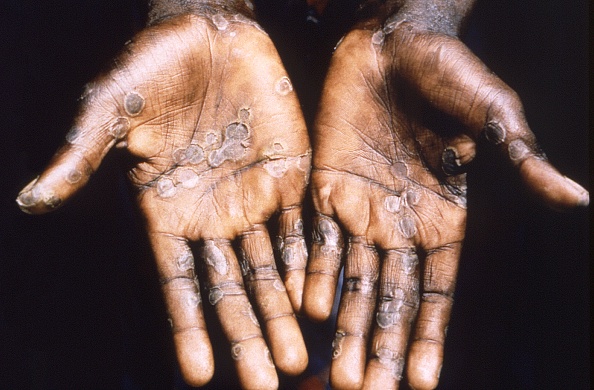Amid the World Health Organization’s warning against the monkeypox virus, an official from the specialized agency discussed the three distinctive symptoms of the infection.
Dr. Catherine Smallwood, the organization’s senior emergency officer, recently appeared on “The Anton Savage Show” podcast and discussed the WHO’s upcoming decision on whether the monkeypox outbreak should be considered a global health emergency.
During her chat with the titular radio presenter, Smallwood enumerated the three hallmark features of a monkeypox infection based on the cases she and her colleagues have seen.
According to her, the distinctive symptoms of monkeypox are “swollen lymph nodes, swollen glands that can be very painful, and then the appearance of [a] very distinctive rash.”
“[The rash] can appear on any part of the body, but if it’s transmitted during sexual activity — which we’re seeing a lot of at the moment — it may be around the genitalia, but it may be somewhere else as well,” she added, per the Irish Mirror.
Smallwood further explained that the third symptom typically starts as a raised red rash that will gradually transform into blister-like lesions. The lesions could range from a few rashes to many.
“And these will develop over the course of a week or so into really quite painful lesions that can be very uncomfortable and then can lead to secondary infections and to some complications that might mean that some people have to be hospitalized,” the expert noted.
In May, the Centers for Disease Control and Prevention (CDC) warned that the members of the LGBTQ community should take precautionary measures amid the outbreak because they appear to be at a higher risk for the virus.
Preliminary data showed that most cases of transmissions were men who have sex with other men. Technically, the virus is not sexually transmissible. However, it can be passed through sexual intercourse and intimate contact that involve contact with body fluids and sores.
A study published last month in the journal Nature Medicine found that the new monkeypox strains have been mutating six to 12 times higher than previously thought. Researchers said the “ongoing viral evolution” could be responsible for the unprecedented spread of new infections.
Due to the rising number of cases, the WHO announced earlier this month that it would reassess the health issue and determine if it meets the criteria to be considered a public health emergency of international concern.
Ahead of the WHO committee’s decision, Smallwood encouraged at-risk people to get vaccinated, saying, “If you are at risk or you consider yourself at increased risk of catching monkeypox, really make sure you know what your vaccination options are.”
She continued, “Some countries are recommending vaccination for people who are at especially high risk but also people who are in contact with a monkeypox case – you may be eligible for vaccination and if you are, you should get that quickly.”















